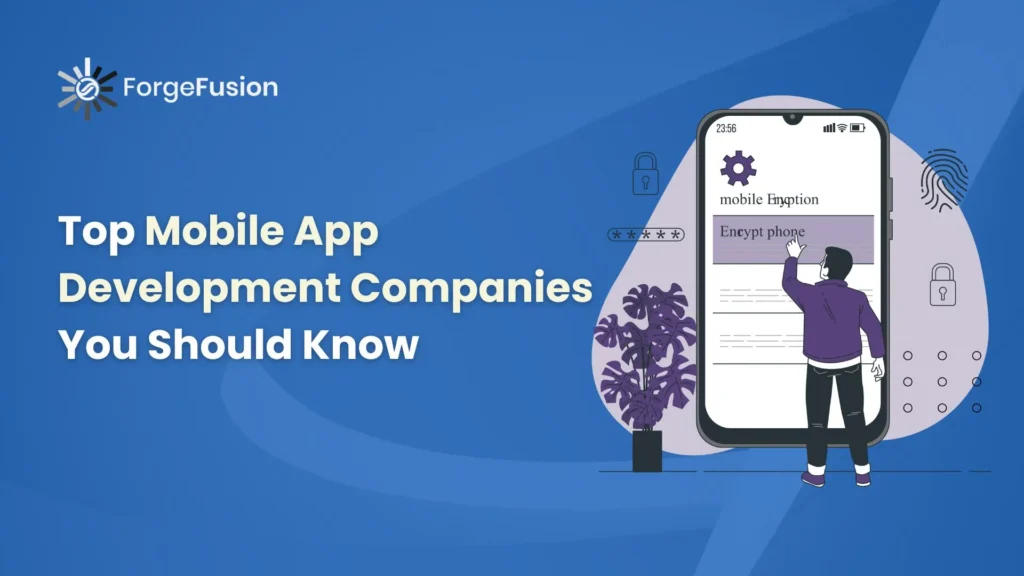What is so different about Meesho, you must all be wondering!
Meesho is an e-commerce platform, and one of India’s first, that focuses on the housewives of our country, allowing them to open their online retailing stores with zero investment and no inventory whatsoever.
Some of the most likable categories on the online app are jewelry, clothing, accessories, home, and kitchen appliances, etc.
The seller lists all his products on the app with accurate details of the product.
The reseller then uses this information provided in the reselling catalog of the app and shares it with potential buyers via FB groups, Whatsapp, etc.
Once the buyer is ready to buy, the reseller only has to fill in their delivery details and place the order, the Meesho app handles the rest.
Meesho’s value estimate is above $4.9 billion and is backed by many high-profile investors in the market. This social commerce startup is one of its kind in the entire industry. It has acquired over 100M+ App downloads and 65M+ active customers.
Sounds quite appealing, doesn’t it? This Meesho case study will explain it all.
How was Meesho started?

Meesho is the creation of two IIT graduates, Vidit Aatrey and Sanjeev Barnwal. It was founded in 2015 after they quit their jobs at InMobi.
The two main goals of their startup were to empower the housewives of the country and support Micro, Small, and Medium Enterprises (MSMEs).
They saw that numerous resellers were at that point selling merchandise through WhatsApp, yet their range was restricted because they could only convey their products locally, to small groups.
They likewise figured out that the majority of the shops enrolled on MEESHO were owned by women, and these women sold their merchandise out of their homes as opposed to in any actual shops.
Meesho’s ongoing plan of action has been constructed thinking about these realities and issues, and as of now, with Meesho, women can easily launch their small business from home, without any stock at hand.
“We are building the single shopping destination for the next billion consumers in India,” Aatrey says.
A transition from FashNear to Meesho

Before Meesho came up in 2015, the original idea was somewhat different. The original startup was called ‘FashNear’, a shopping app with highly curated inventory from nearby fashion stores.
A buyer could order up to three items and get them delivered to their doorstep. However, if they did not like any item, they could return it to the delivery person and keep the rest.
Had the idea stuck, it would have been something equivalent to Zomato or Grofers but for clothes.
However, the founders could not keep up with the demand and the quality required for the startup to succeed. Thus, this unrealistic idea was dropped.
FashNear gave way to another new idea of allowing small business owners to open their digital shops.
According to this model, any person could log in using their Facebook credentials and open their online shop. The platform handled everything in-built from inventory to packaging and shipping, making it the first choice among resellers.
Meesho, a short form for Meri E-Shop was thus created.
“Meesho is a phenomenal story. It is a category-creating startup, not just a category-defining one,” says Amit Somani, managing partner at Prime Ventures
Meesho’s funding history
In this Meesho case study, we shall explain Meesho’s funding history in depth.
It has raised funding in various rounds over time.
A 3-month summer program headlined by The Mountain View and Y Combinator raised a sum of $120,000 in July 2016. During the same year, angel investors Rahul Garg and Kashyap Deorah invested an undisclosed amount in the startup.
Their first major funding was in 2017 when Meesho raised $3.1 million in series A funding led by Indian capital firm SAIF Partners.
The company’s series B funding round raised $11.5 million led by Sequoia India in 2018. In the same year, its series C funding raised worth $50 million.
The startup raised $125 million in the Series D round.
Meesho’s value proposition

For consumers
The most serious issue with online shopping in India is the absence of trust. In the total number of inhabitants of 1.38 billion, not many individuals shop online (150 million) and, surprisingly even lesser go for repeat purchases.
The reason for this quite less number is the feeling of dread toward being misled or tricked, particularly concerning purchasing items from another dealer or site.
Meesho tackles this problem smartly, bringing resellers into action. Resellers are very much trusted in their communities thus taking out the fear of theft and scam from the minds of the buyers enabling them to place their orders at ease.
For resellers
Meesho gives affiliates a stage to begin and develop their own business with zero inventory and investments. It sources items from providers at discounted prices and offers the same to resellers to offer to their community groups.
Sellers create an organized shop on Meesho and share their products via Facebook and Whatsapp.
Meesho also takes care of payments, packaging and deliveries, and after-services, saving resellers the hassle of all.
Meesho’s market overview

This Meesho case study explains well its market overview from its initial years up till today.
While e-commerce is a wider branch to discuss, social commerce is one such sub-category that explains buying and selling products and services via various social media platforms like Facebook, Instagram, and other social networking sites. It also assists in reselling similarly.
According to a report by management consulting firm Bain & Company, Indian social commerce in the market is expected to reach $16-20 billion by 2025 and $60-70 billion by 2030 in size. Whereas, the share of social commerce in India’s e-commerce market is expected to experience a compound annual growth rate (CAGR) of 65% between 2020-25.
While social commerce is readily available for all, it is very popular as a passive income source amongst all age groups because customers from middle-class backgrounds, especially from tier-2 cities and towns have a fear factor while shopping online.
This is because they prefer ordering through a real person and not a computer entity. Hence, resellers create curated lists of products for different age groups and price preferences. This builds trust between the resellers and the buyers, allowing them to acquire sales.
Social commerce apps have products listed at a much lower price than in traditional markets because reselling here is with zero overheads. This enables sellers to provide a sustainable price yet also make enormous profits.
As reported by Bain & Company, 85% of all social commerce players are small sellers, making it possible for them to reach consumers nationwide.
Thus, social commerce helps small business owners display their shops in an organized manner.
As intriguing as it is for sellers and resellers, social commerce is also a magnet for investors. Social commerce platforms have raised $554 million in 2023 alone.
Meesho’s marketing strategies
Meesho is one of the newest companies to become a unicorn company in its first 6 years. The startup gives high competition to big companies like Amazon and Flipkart while also challenging them with its unique proposition and marketing strategies, causing their downfall down the line.
Meesho has inculcated unique and never-heard-before marketing strategies that favor its audience like no other brand. Let’s see some of their major marketing strategies in this Meesho case study.
My store my story

The brand targets mainly women audience through this strategy, inducing a sentimental yet empowering value towards the women of India. This strategy focuses on providing women the means to financial freedom, especially housewives, by doing something inside the four walls of their homes.
Their slogan, “Not just a homemaker, a Meesho entrepreneur” holds an empowering energy attracting the right audience for their brand success.
Hamara mission, sabse kam commission

Wunderman Thompson ideated the campaign #sabsekamcomission to educate and attract suppliers and retailers claiming that Meesho charges its commission rate as low as 1%. The idea blew up attracting a huge number of small business owners and making Meesho a success even during the pandemic.
Social media and influencer marketing
The best and easiest way to connect with a large audience is through Social Media. As people spend a lot of time online, Meesho has adopted this method where they engage with their followers and on their posts. Meesho also used the technique of influencer marketing to gain the trust of its audience.
These influencers promote Meesho’s products on their social media channels through posts and videos, in turn getting a commission from Meesho. Another social media tactic used by Meesho is capitalizing on the ‘meme wave’ as memes are more popular and an interesting way to promote brands.
YouTube and Facebook ads
Ads are a full-proof method to increase any business and Meesho is no different. When anyone clicks on these ads, they are redirected to Meesho’s website which helps the company gain more traffic.
Meesho’s growth plans
The primary objective of Meesho is to help sellers establish an easy online presence and resellers earn money without the hassle of investments, inventory, and shipping. All that is necessary is a good internet connection and time to get along with your community, convincing them to buy your products.
Recent reports suggest that Meesho is looking to onboard 100 million small businesses and provide strong competition on Amazon and Flipkart.
They have also included a new category, Farmiso, in an attempt to rebrand and provide FMCG products giving direct competition to brands like BigBasket and Jiomart.
Meesho’s business model & distribution strategy
Once the startup acquired a product-market fit and established its agenda of empowering housewives to create their own identity and earn, it started to scale its business. Here’s how Meesho’s business model and distribution strategy work!
As their target industry is fashion and their target audience is women, they approached various influencers and Youtubers for collaborations.
While they paid a minimal collaboration cost to them, these influencers shared Meesho’s products spread over 200 different categories and its easy-to-use app with their respective communities through videos and posts, Meesho became a big hit in the social commerce industry.
Even its first TVC was focused on women breaking the housewife stereotypes and creating their own identity. The ad empowered women to realize their potential and become entrepreneurs in an easy yet effective manner.
Meesho’s primary partners
The platform depends on five key partners:
Suppliers
Meesho has collaborated with providers from everywhere in India to offer several different items. These providers incorporate wholesalers, manufacturers, and merchants who list their items on the Meesho app. These suppliers get guaranteed payments and zero penalties on late dispatches along with a few other added benefits.
Marketing partners
Meesho’s marketing strategies are prolific. It has partnered with marketing companies like DVio Digital to cater to its marketing needs. Meesho also has an affiliate marketing program where it rewards its influencers for bringing in new sales and customers.
Financial partners
The company is backed by Venture companies and angels including YC, Facebook, Naspers, Sequoia Capital, Shunwei Capital, and SAIF Partners.
Shipping partners
Delhivery, Ecom Express, and Blue Dart are some of Meesho’s leading logistics partners that ensure quick and secured deliveries.
Payment partners
Paytm, Cashfree, and Razorpay are Meesho’s payment partners that ensure a smooth and safe payment experience for all its sellers.
Meesho’s revenue model
Meesho’s revenue model has the following prospects :
Commissions – Meesho charges 10-20% commission on each sale made through their app or website.
Penalty – Every time an order is returned due to poor quality or damaged condition, Meesho charges a penalty cost to the seller.
Advertisements – Meesho runs paid ads on its platform to help sellers rank their products higher than their competitors.
Logistics – Meesho provides all the assistance for packaging and delivering the products to the customer’s doorstep. This in-house assistance helps sellers save time and energy, while Meesho earns from the same.
Float Money – Meesho holds the payment for 7-10 days after delivery. This money can be used for investments and loans thus making good returns and interest.
Meesho’s in-house cost structure
Running a commercial center is not a simple accomplishment and it accompanies a ton of expenses. Here is a speedy summary of the Meesho cost structure:
Technology costs
Meesho has an in-house technical team looking out for ways to improve the platform and make it more user-friendly. The technology costs include server costs, CDN costs, and other related framework costs.
Marketing costs
Meesho’s marketing strategies require a significant amount of that including TV commercials, affiliate marketing, online ads, campaigns, etc.
Payment processing fee
Apps like Paytm, Gpay, Phonepay, etc charge a processing fee on each payment done through them.
General costs
These include salaried employees, legal advisors, and overhead costs.
Key activities of the Meesho model
- It provides a marketplace for all buyers and sellers to co-exist together and carry out business.
- Meesho has an in-house team assigned to quality control all the products being sold through the app.
- Meesho has a built-in catalog to allow resellers to handpick items and share them with their communities via Whatsapp and Facebook
- Meesho also runs ad campaigns to spread more awareness about their reselling platform to onboard more and more sellers every passing day.
- Meesho handles the payments between sellers and customers meaning all the customer payments first go to Meesho, who then provides their respective payments to their sellers in 7-10 business days as per their guidelines.
- Meesho has in-house customer support to tackle all issues related to damaged products, returns, refunds, exchanges, and so on.
How anyone can start earning with Meesho?
Anyone can start earning through Meesho. Meesho provides a wide range of products spread across 200+ categories.
You can make a curated list of products depending on what your community desires and are likely to buy easily and share it via social media apps like Facebook, Whatsapp, and Instagram.
With each sale, you will earn a commission as allotted by the Meesho guidelines.
One added benefit here is that you get to set your profit margin on each product individually. Once a customer is ready to order, you have to add your profit margin to the cost of the product listed on the Meesho app including shipping and tell the final price to the customer.
After the order is delivered, you will receive your payment in 7-10 working days as stated in Meesho’s guidelines.
In the case of COD orders, the customer has to pay the delivery executive itself. Once Meesho receives the payment through their agents, your payment will be credited after 10 working days.
Meesho – tough on competitors
Today, the social commerce market is expanding, and apps like Bulbul, Simsim, Citymall, and Glowroad are proving to be good competition. However, none have them are as good a crowd-pleaser as Meesho. Why?
Meesho gives heavy competition due to its logistics network. Meesho targets tier-2/3 + cities with people looking to buy cheap products with an average value of Rs 500.
Thus, with products being cost-effective, Meesho receives a higher daily order value as compared to its competitors offering high utilization to its logistics partners. This not only reduces its logistic cost but the savings are then used to make the platform supplier friendly.
Thus, this Meesho case study explains well how Meesho has a unique proposition that is difficult to duplicate or reciprocate for its competitors.
FAQs
-
What is Meesho’s business model?
Meesho is a social commerce platform that connects suppliers with resellers on social media platforms like WhatsApp and Facebook. They earn a commission on each sale made by a reseller, while suppliers can reach a wider audience without having to manage their own online store.
-
How did Meesho start?
Meesho was founded in 2015 by Vidit Aatrey and Sanjeev Barnwal as a way to help small businesses in India access a wider market through social media. They started with just a few suppliers and resellers and grew their network through word of mouth.
-
What makes Meesho’s business model unique?
Meesho’s business model leverages social media platforms to create a network of resellers who can reach a wider audience than they could on their own. This creates a win-win situation for both resellers and suppliers, and allows Meesho to scale without having to manage inventory or logistics.
-
How has Meesho grown since its inception?
Meesho has grown rapidly since its inception, and has raised over $1 billion in funding from investors like SoftBank, Facebook, and Sequoia Capital. As of 2023, they had over 13 million resellers on their platform and were valued at over $2 billion.
-
What can other businesses learn from Meesho’s success?
Meesho’s success highlights the importance of understanding your customers’ needs and leveraging technology to create innovative solutions. By focusing on the needs of small businesses in India and using social media to connect them with customers, Meesho has created a scalable and profitable business model that has disrupted the e-commerce industry.
Final thoughts
Meesho now also allows customers to directly buy from the app. This has surely upset its reseller audience, however, the startup has no competitors alike and thrives immensely.
It now gets 75% of its revenue directly from its customers, while the remaining 25% comes from resellers.
Customers can directly buy from the sellers instead of resellers, thus getting products at a very cheap price. Its prices give tough competition to big players like Amazon and Flipkart.
The only question that remains is, is Meesho still the best reselling platform in the social commerce industry or yet another shopping website? We hope that this Meesho case study has helped you understand this startup’s successes better. Tell us your point of view in the comments below!



